Knowledgebase Contents
IP Transit Page Navigation
Overview
If you want to experience that low latency for 30 days, reach out for our free IP Transit trial.
In addition, BGP communities for traffic engineering, support for BGP FlowSpec, and fast service delivery (under 48 hours on average) add compelling value to Inter.link’s service.
Inter.link IP Transit service delivers best-in-class performance due to the breadth and depth of the Inter.link backbone network’s connectivity to a variety of networks, including smaller regional networks. By contrast, many Tier 1 and Tier 2 ISPs don’t peer with smaller and regional networks. Inter.link’s commitment to in-depth peering relationships means that customers can gain the best performance to the widest set of networks and users.
Requirements and Benefits
- Customer must have/use a public AS Number
- IPv4 /31 and IPv6 /127 transfer networks by default
- Larger networks available on request
- Internet Access with BGP Session(s)
- One or more BGP Sessions can be configured
- BGP Communities available according to Routing Policies section of knowledgebase
- BFD (Bidirectional Forwarding Detection) is not supported
Components
VLAN
Requires a port
IP Transit can be handed over on a tagged VLAN, which can be defined by the customer, or VLAN untagged.
Specifying a VLAN ID is optional when ordering services on Inter.link ports, but there can only be a maximum of 1 service per port without a VLAN (there can be up to 4094 services with a VLAN ID).
Prefix(es)
Requires Port+VLAN(s); can be configured at the VLAN level only, this includes the untagged VLAN.
Prefix can be IPv4 or IPv6, ranging up to /32 and /128.
BGP Session(s)
Requires IPv4 Prefix for IPv4 BGP Session & IPv6 Prefix for IPv6 BGP Session
BGP Sessions, IPv4 and/or IPv6.
Service Delivery Time
Inter.link provisions IP-Transit services in under 48 hours for on-net locations. This can be quicker through the Inter.link portal.
How to Order through the portal
IP Transit can be provisioned through the Inter.link portal. Below are the steps explaining how to do this.
Setting up an account in the portal is the very first step and this is explained in the Using the Portal section of the knowledgebase.
Step 1
Click on ‘Add a Service’ and select ‘IP Transit’
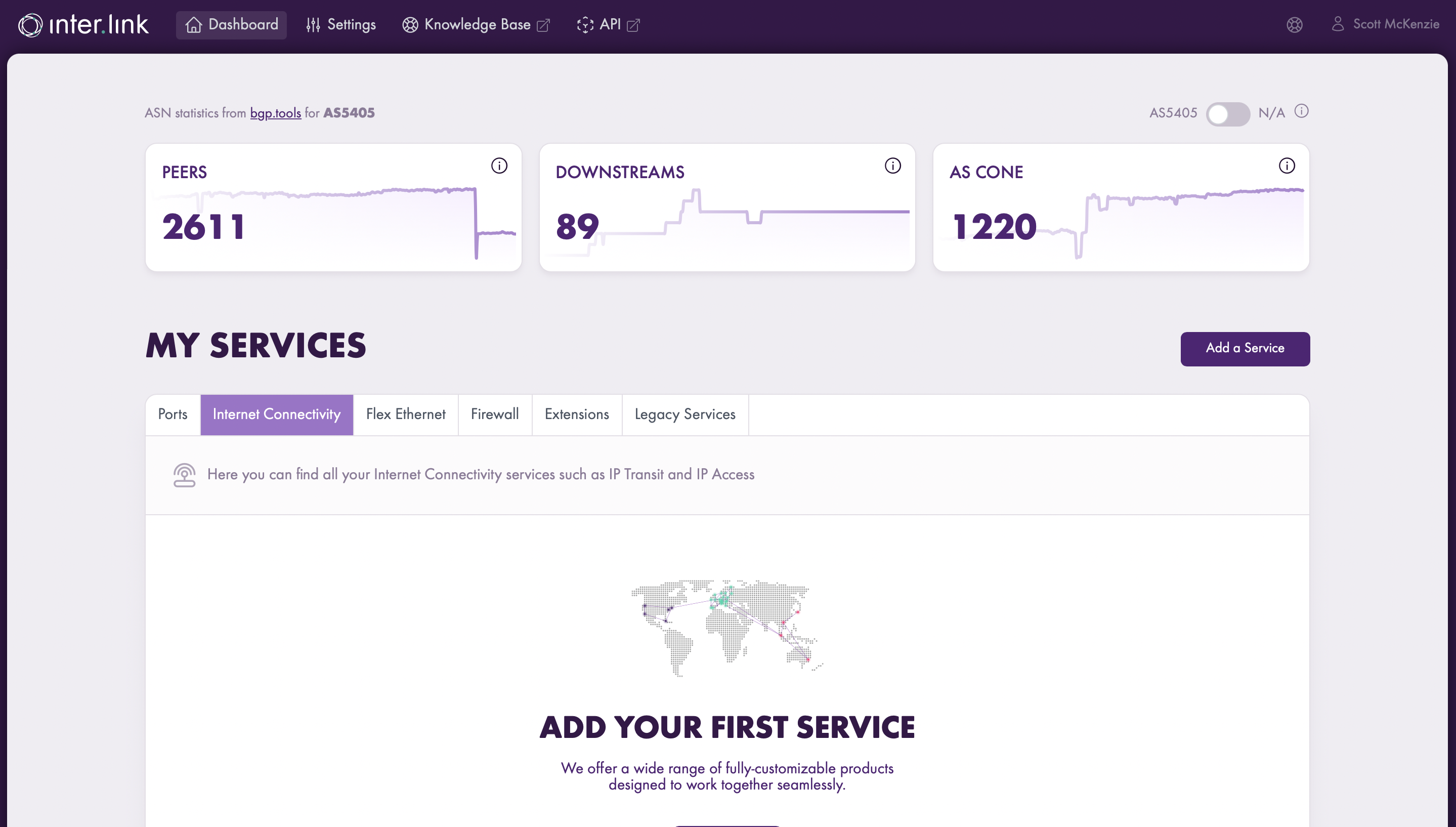

Step 2
Find and selected your desired location.
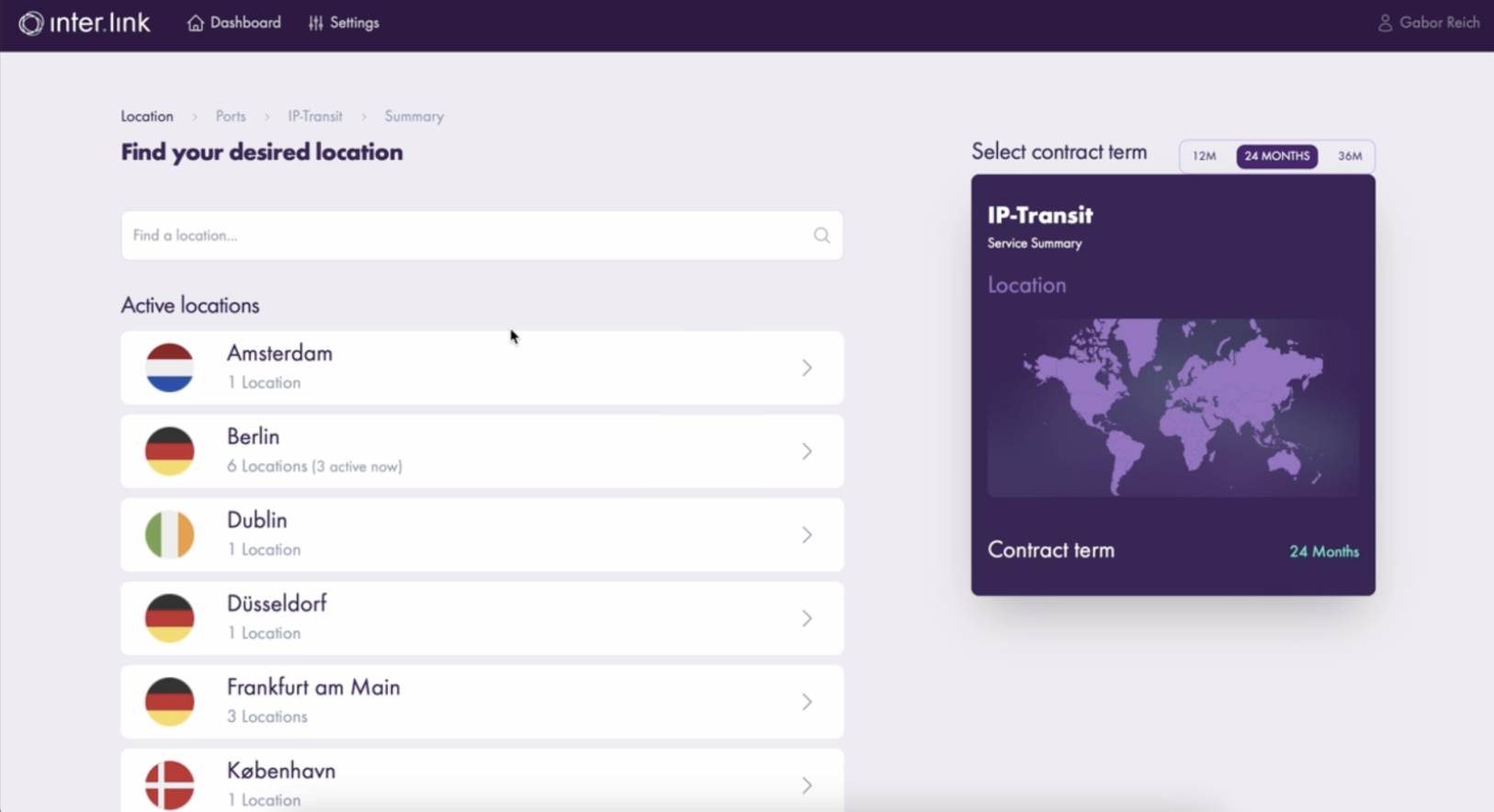
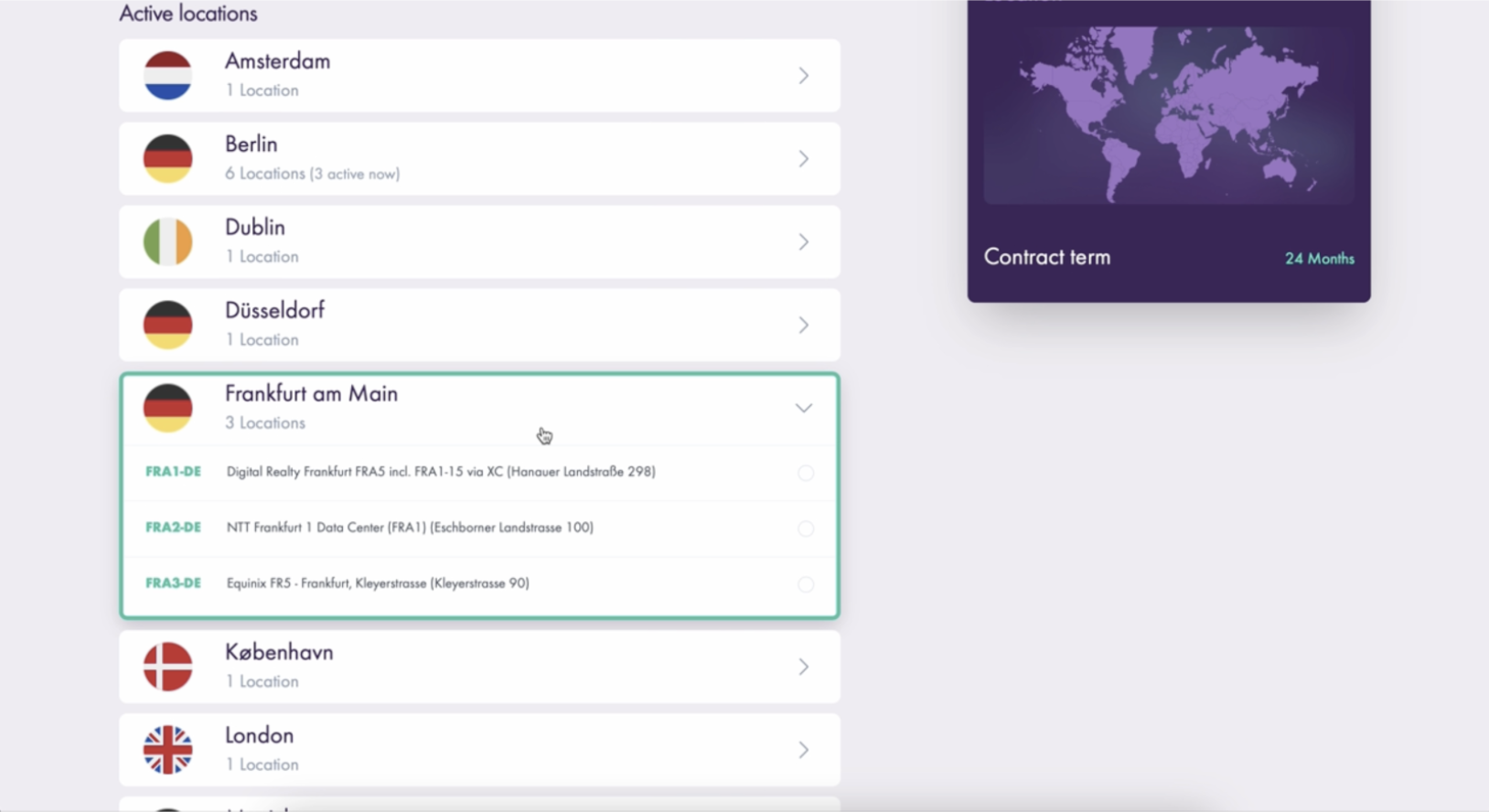
Step 3
Configure your port.
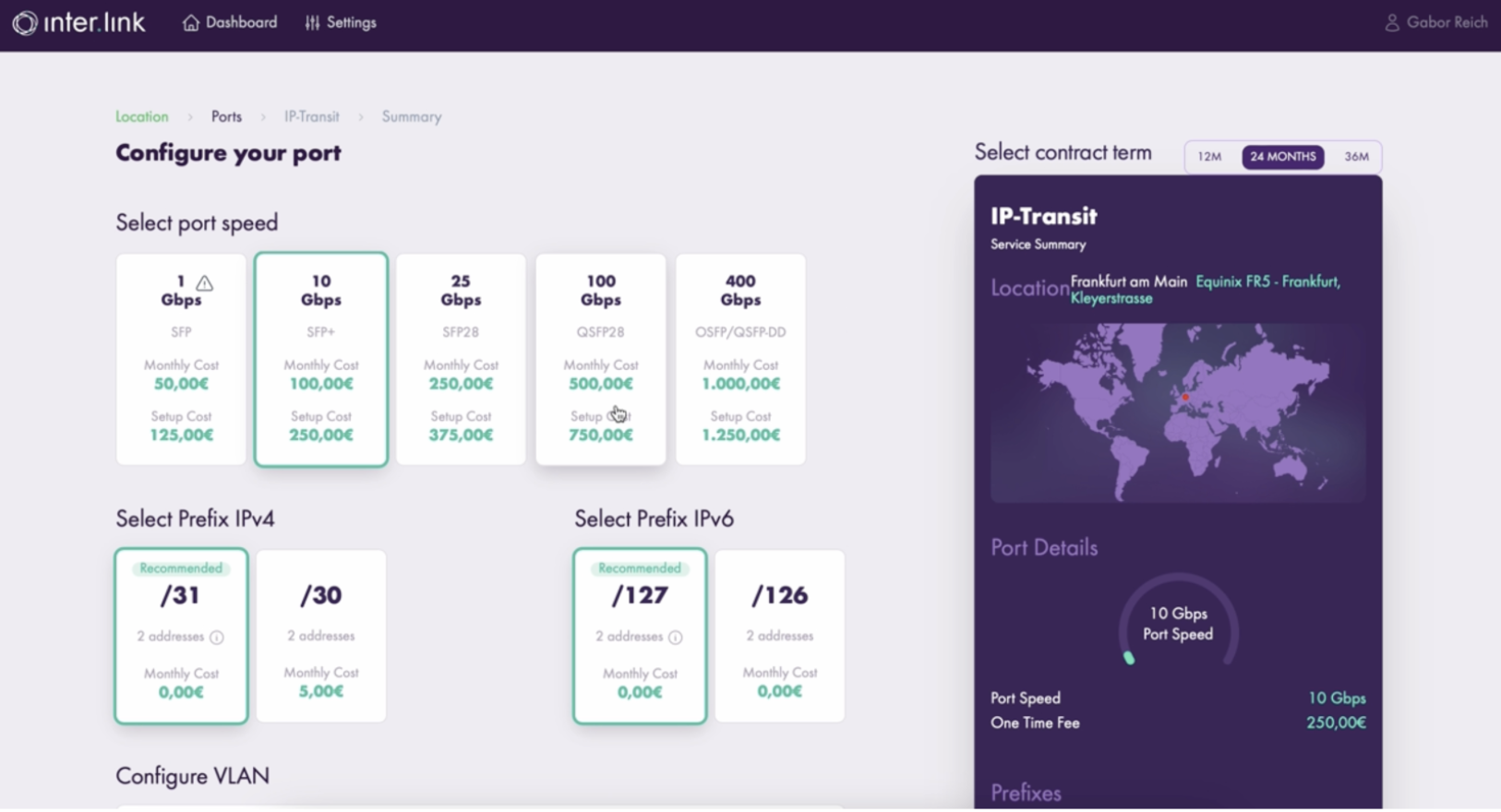

Step 4
Configure your IP Transit.
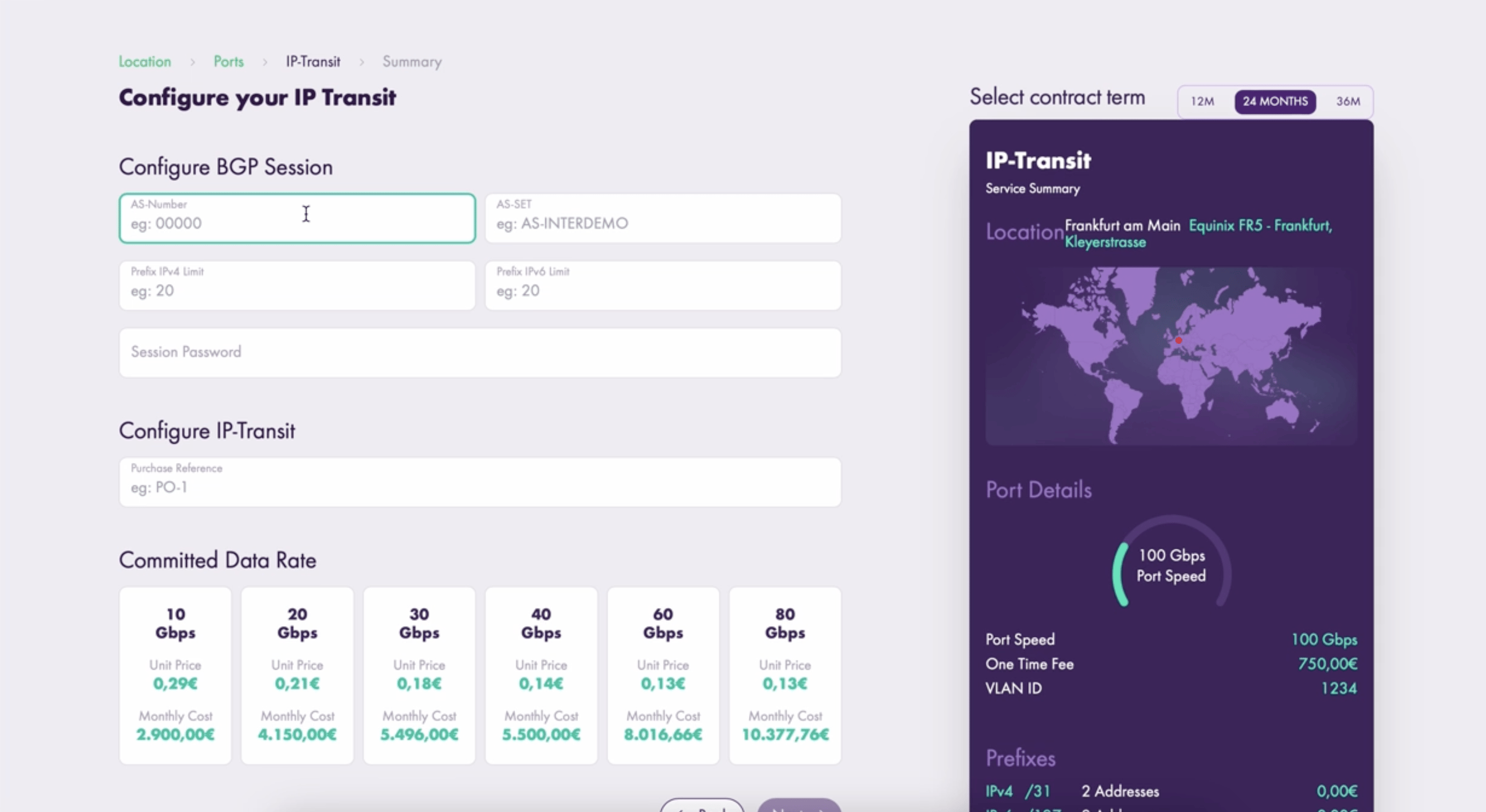
Step 5
Place your order.
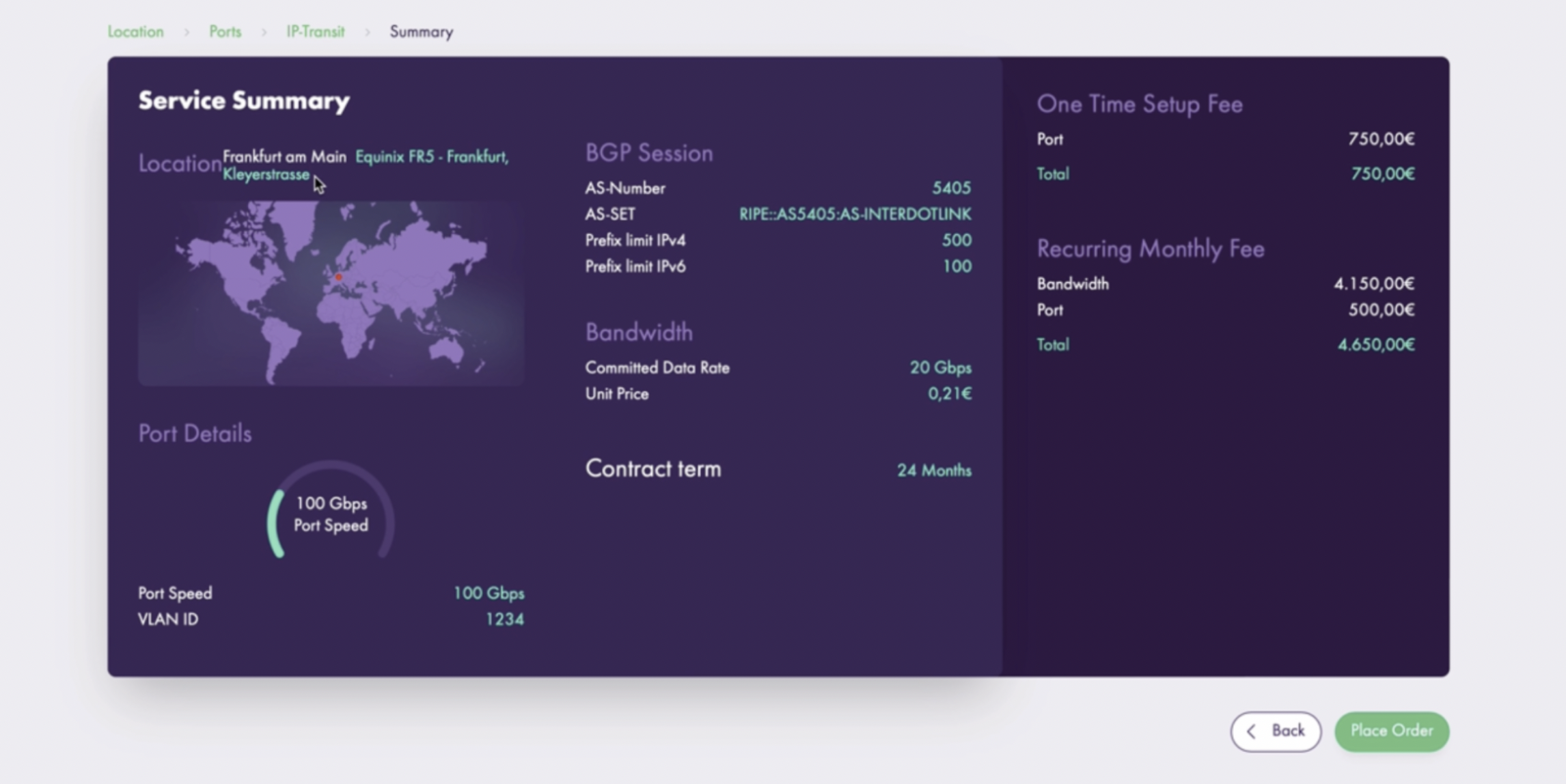
Billing for IP Transit
- The Committed Data Rate (CDR) must be at least 10% of the port line rate
- Billing is on a 95/5 percentile basis with burst billed at the same CDR price per Mbps
- Aggregated billing over multiple ports is now enabled on our portal but please speak to your sales rep if you need more detail
Complete information on Inter.link pricing can be found in the Pricing section of the knowledgebase.
Generalized TTL Security Mechanism (GTSM)
The Generalized TTL Security Mechanism (GTSM) is a solution to mitigate BGP spoofing. It protects a BGP session by comparing the TTL value in the IP header of incoming BGP packets against a valid value. If the TTL value equals 255 it’s considered valid and the packet is accepted. If not, the packet is discarded.
If you want to enable GTSM on your BGP session with Inter.link, please contact support@inter.link.
Flowspec rules
With FlowSpec, on a separate BGP session, customers can announce FlowSpec filter rules which will be installed in our network. This way, easy and customer-controlled filtering can help to mitigate DDoS attack before they reach the customer network.
We are planning on adding additional filtering capabilities into the Inter.link Portal for customer’s whose equipment doesn’t support BGP FlowSpec.
Internet Exchanges
Inter.link is connected to the following internet exchanges and peering partners:
- Amsterdam Internet Exchange
- Berlin Commercial Internet Exchange
- Swiss Internet Exchange
- Stockholm Internet Exchange
- Vienna Internet Exchange
- DE-CIX (Deutscher Commercial Internet Exchange)
- London Internet Exchange
- Prague Internet Exchange (NIX.CZ)
- Stuttgart Internet Exchange
- ESPANIX
- Frys-IX
- Netnod Stockholm
- NL-IX
- Peering.cz
